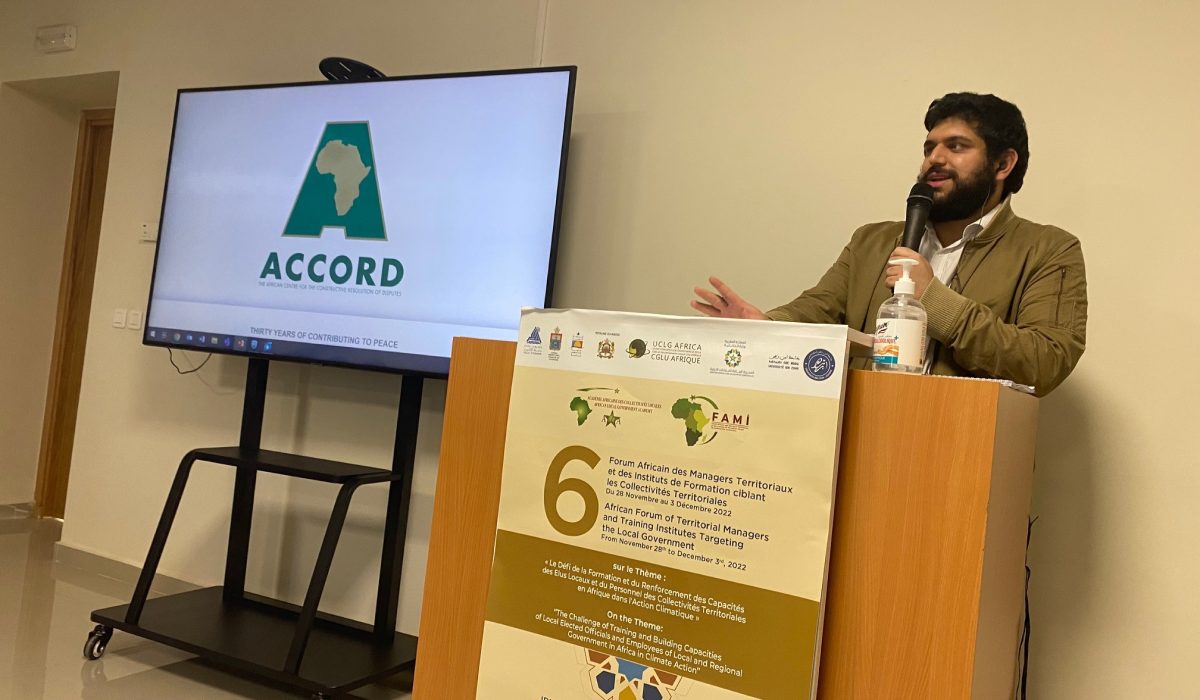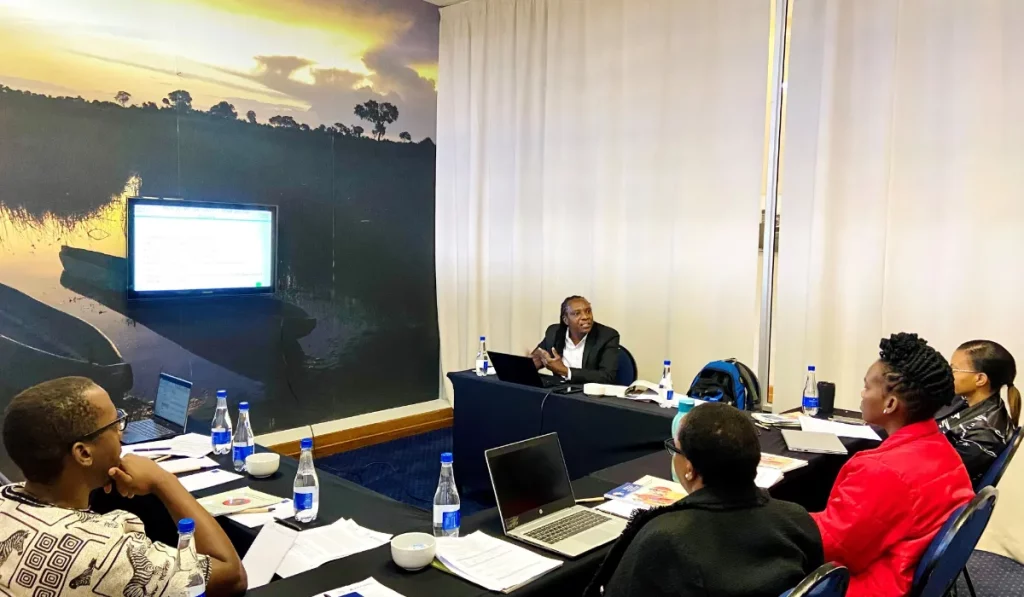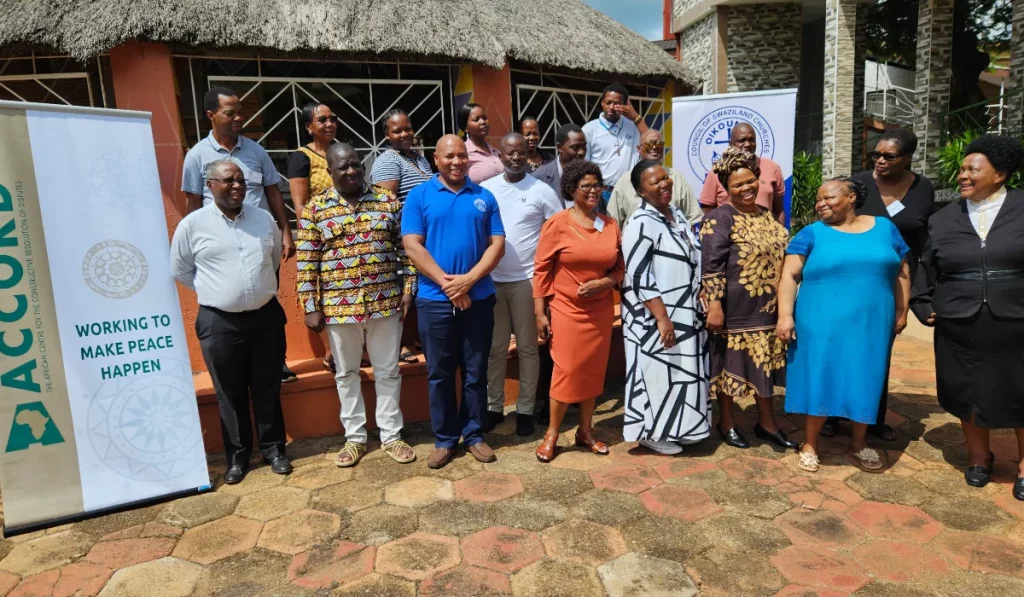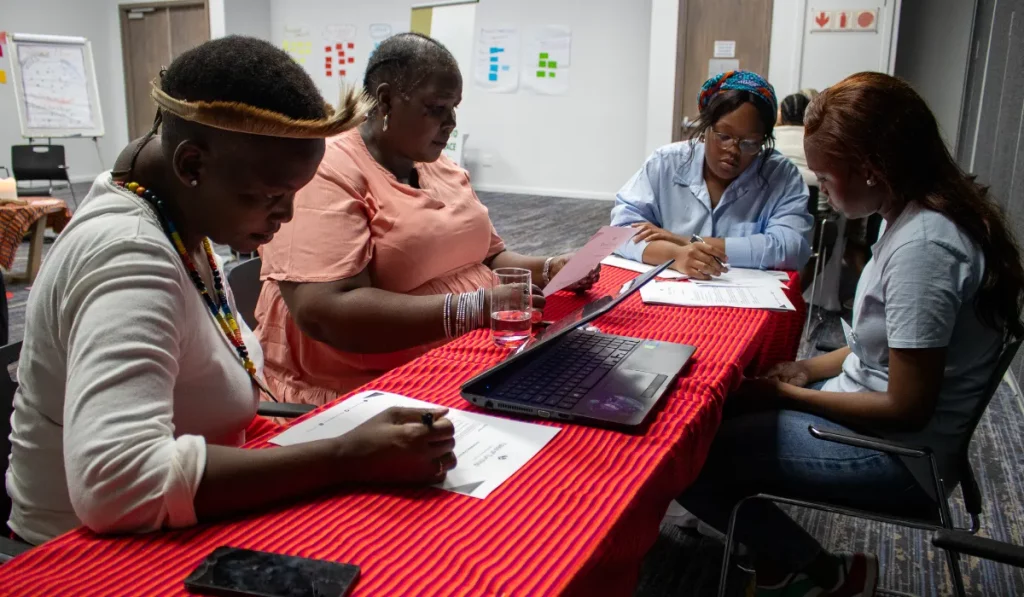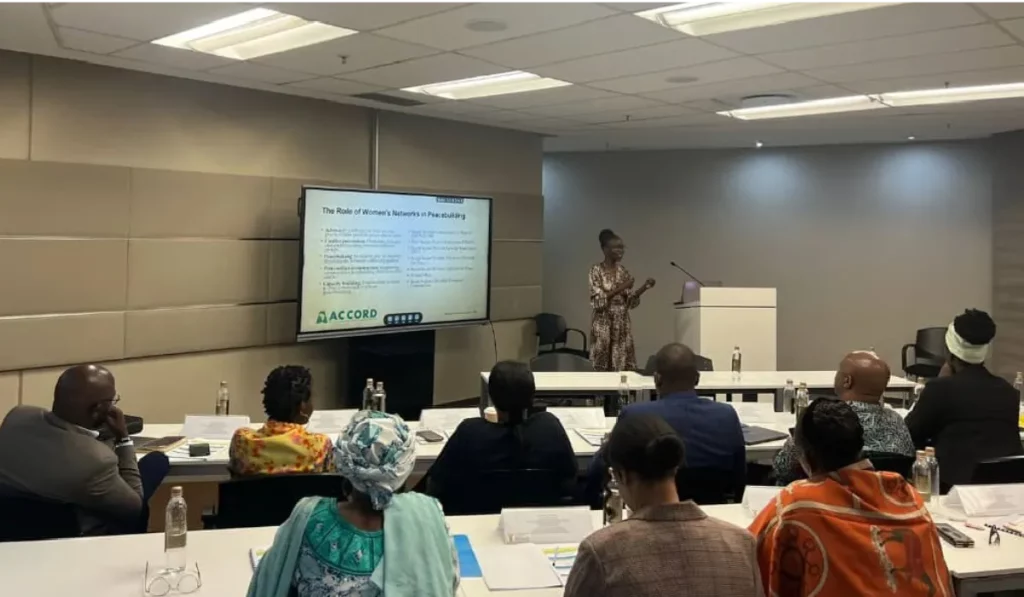ACCORD, in collaboration with the United Cities and Local Governments Africa (UCLG A), hosted an inter-generational dialogue (IGD), exploring the dynamics between climate change, migration and conflict.
The IGD which took place on 30 November 2022, in Agadir, Morocco, formed part of the programme for the Sixth African Forum of Territorial Managers and Training Institutes Targeting Local Governments (FAMI 6), hosted by UCLG A. ACCORD’s Programme Officer Mr. Adam Randera moderated the dialogue that included expert panellists, Mr. Sidi Khalifa, Secretary General of the Association of Municipalities of Mauritania; Dr. John-Mary Kauzya, Senior Expert in Governance and Public Administration; and Mr. Abderrahim Sioui, President of the Democracy and Citizenship Forum and member of the North Africa and Middle East Partnership for the Prevention of Armed Conflict. Furthermore, Ms. Khouloud Baghouri, African Youth Ambassador for Peace for the North Africa Region, submitted a video presentation.
The IGD unpacked the complex dynamics between climate change, conflict, and migration with a focus on how local governments can manage the potential for conflict that arises out of both climate change and increased migration caused by displacement due to natural disasters. The discussions helped explore how climate change, while rarely a direct cause of conflict by itself, may lead to and exacerbate other socio-political and economic phenomena that may, if poorly managed, result in conflict. Foremost among these phenomena, particularly from the perspective of local governments, is migration, which can place substantial strain on service delivery and governance structures. The dialogue helped position the importance of understanding these and other security risks posed by climate change as being especially important in Africa, given the continent’s already delicate ecosystems, growing population, reliance on agriculture, and young population. The panel discussion also highlighted the importance of youth voices being amplified at a grassroots level, especially in international advocacy efforts, when it comes to shaping responses to the risks posed by climate change. The discussion also led to a recommendation that youth involvement should be strengthened throughout the humanitarian, development and peacebuilding nexus, including in decision-making.
ACCORD recognises local government stakeholders as a key constituency when it comes to building local and national capacities for peace. This dialogue was therefore a means to deepen local government’s understanding and knowledge of climate change being a risk multiplier. The dialogue also provided an opportunity to discuss strategies to help mitigate the risk to security that migration may cause.

